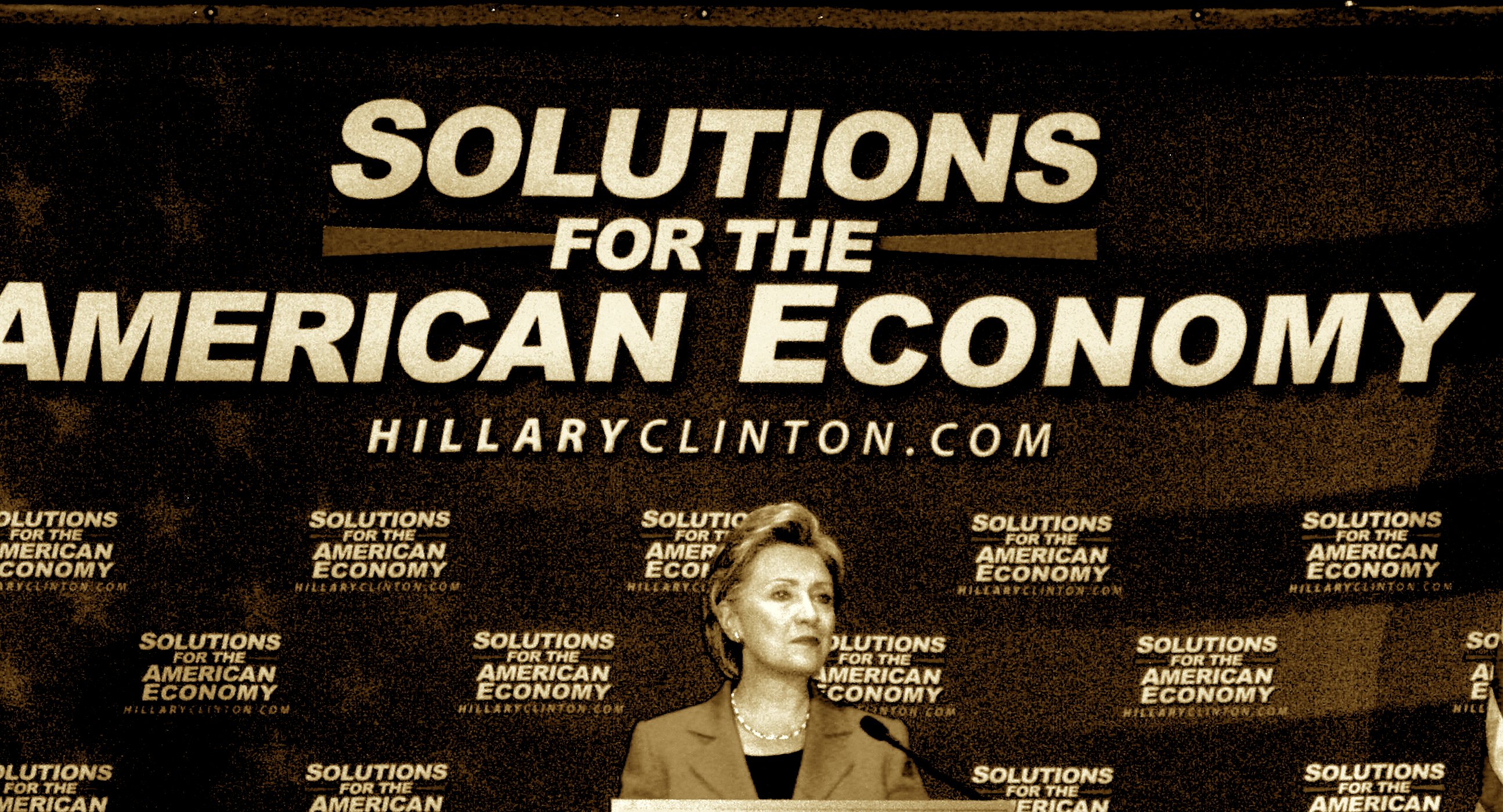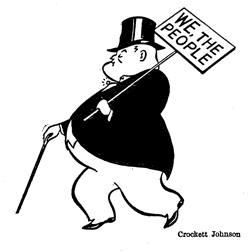
Hillary Clinton delivers economic policy address this morning at Penn [NICK POWELL]
 BY NICK POWELL POLITICAL CORRESPONDENT Flanked by a Pennsylvania Dream Team of Governor Ed Rendell, Mayor Michael Nutter, and Congresswoman Allyson Schwartz, Senator Hillary Clinton attacked the Bush administration, spared Barack Obama, and outlined her new four-point plan to save the country’s reeling economy this morning at the University of Pennsylvania. Clinton began today’s press conference by praising both Rendell and Nutter for their “visionary leadership” and for their efforts to fix “an issue critical not only for Pennsylvania but for our country.” Clinton also made a brief statement in regards to the rising death toll in Iraq, which just reached four thousand killed. She reiterated her stance that if she were elected president she would “Bring them home as quickly and swiftly as possible.”
BY NICK POWELL POLITICAL CORRESPONDENT Flanked by a Pennsylvania Dream Team of Governor Ed Rendell, Mayor Michael Nutter, and Congresswoman Allyson Schwartz, Senator Hillary Clinton attacked the Bush administration, spared Barack Obama, and outlined her new four-point plan to save the country’s reeling economy this morning at the University of Pennsylvania. Clinton began today’s press conference by praising both Rendell and Nutter for their “visionary leadership” and for their efforts to fix “an issue critical not only for Pennsylvania but for our country.” Clinton also made a brief statement in regards to the rising death toll in Iraq, which just reached four thousand killed. She reiterated her stance that if she were elected president she would “Bring them home as quickly and swiftly as possible.”
However, the primary focus was the economy, which Clinton acknowledged has become more and more complex in the 21st Century. Clinton pointed out that as the value of our homes are plummeting, small businesses are also having an increasingly difficult time getting loans. And in addressing a crowd filled with many college students, Clinton did not hesitate to point out the increasingly arduous process of acquiring student loans. Clinton went on to attack the Bush administration for continuing to downplay the economic recession, saying, “When people lose confidence in our economy and our president’s ability to manage it, problems turn into crises.” She continued by blasting President Bush’s recent stimulus plan for being soft on Wall Street and Banks and doing little to address the housing crisis, calling it “the bank lobby’s dream,” and spoke of the rising foreclosure numbers in the country, which have increased sixty percent.
the 21st Century. Clinton pointed out that as the value of our homes are plummeting, small businesses are also having an increasingly difficult time getting loans. And in addressing a crowd filled with many college students, Clinton did not hesitate to point out the increasingly arduous process of acquiring student loans. Clinton went on to attack the Bush administration for continuing to downplay the economic recession, saying, “When people lose confidence in our economy and our president’s ability to manage it, problems turn into crises.” She continued by blasting President Bush’s recent stimulus plan for being soft on Wall Street and Banks and doing little to address the housing crisis, calling it “the bank lobby’s dream,” and spoke of the rising foreclosure numbers in the country, which have increased sixty percent.
Senator Clinton then introduced her own plan for boosting our economy, Clinton began by endorsing Senator Chris Dodd and Congressman Barney Frank’s recent legislation that would guarantee restructured mortgages and the reselling of “underwater” mortgages, that Clinton said, “Would help to unfreeze our credit markets.” Clinton also called for President Bush to form a non-partisan emergency working group on foreclosures that would include former Federal Reserve Chairmen Alan Greenspan and Paul Volcker among others. This group, Clinton said, would help determine how to implement legislation on the restructuring of at-risk mortgages. This comes on the heels of Senator Obama’s own letter to current Reserve Chairman Ben Bernanke, proposing a similar working group.
Perhaps the most noteworthy point of Clinton’s plan was a proposed housing stimulus package with a thirty-billion dollar emergency fund that would allow for non-profit organizations and city governments to help find housing for low-income families. Clinton admonished the federal government for giving a thirty-billion dollar lifeline to Bear Stearns, saying that “When families are losing their homes, that’s a financial crisis.” The final point of Clinton’s plan was her proposed legal protection for mortgage servicers who help underwater mortgagers modify their mortgage.  Clinton said that many of these servicers would not help people because they are afraid of litigation. This plan, Clinton said, “Will rebuild our economy more resilient than ever before,” and took one final potshot at Bush, saying, “It is a question of leadership.”
Clinton said that many of these servicers would not help people because they are afraid of litigation. This plan, Clinton said, “Will rebuild our economy more resilient than ever before,” and took one final potshot at Bush, saying, “It is a question of leadership.”
WIKIPEDIA: The Glass-Steagall Act established the Federal Deposit Insurance Corporation (FDIC) and included banking reforms, some of which were designed to control speculation.[citation needed] Some provisions such as Regulation Q that allowed the Federal Reserve to regulate interest rates in savings accounts were repealed by the Depository Institutions Deregulation and Monetary Control Act of 1980. Other provisions which prohibit a bank holding company from owning other financial companies were repealed in 1999 by the Gramm-Leach-Bliley Act. [1] Two separate United States laws are known as the Glass-Steagall Act. The Acts (Glass & Steagall) were both reactions of the U.S. government to cope with the economic problems which followed the Stock Market Crash of 1929.
*
“I remember landing under sniper fire. There was supposed to be some kind of a greeting ceremony at the airport, but instead we just ran with our heads down to get into the vehicles to get to our base.”– Senator Clinton, March 17, 2008.

